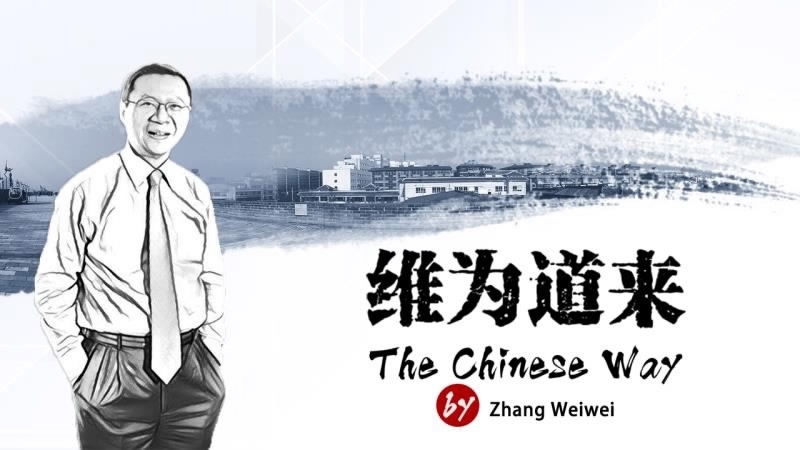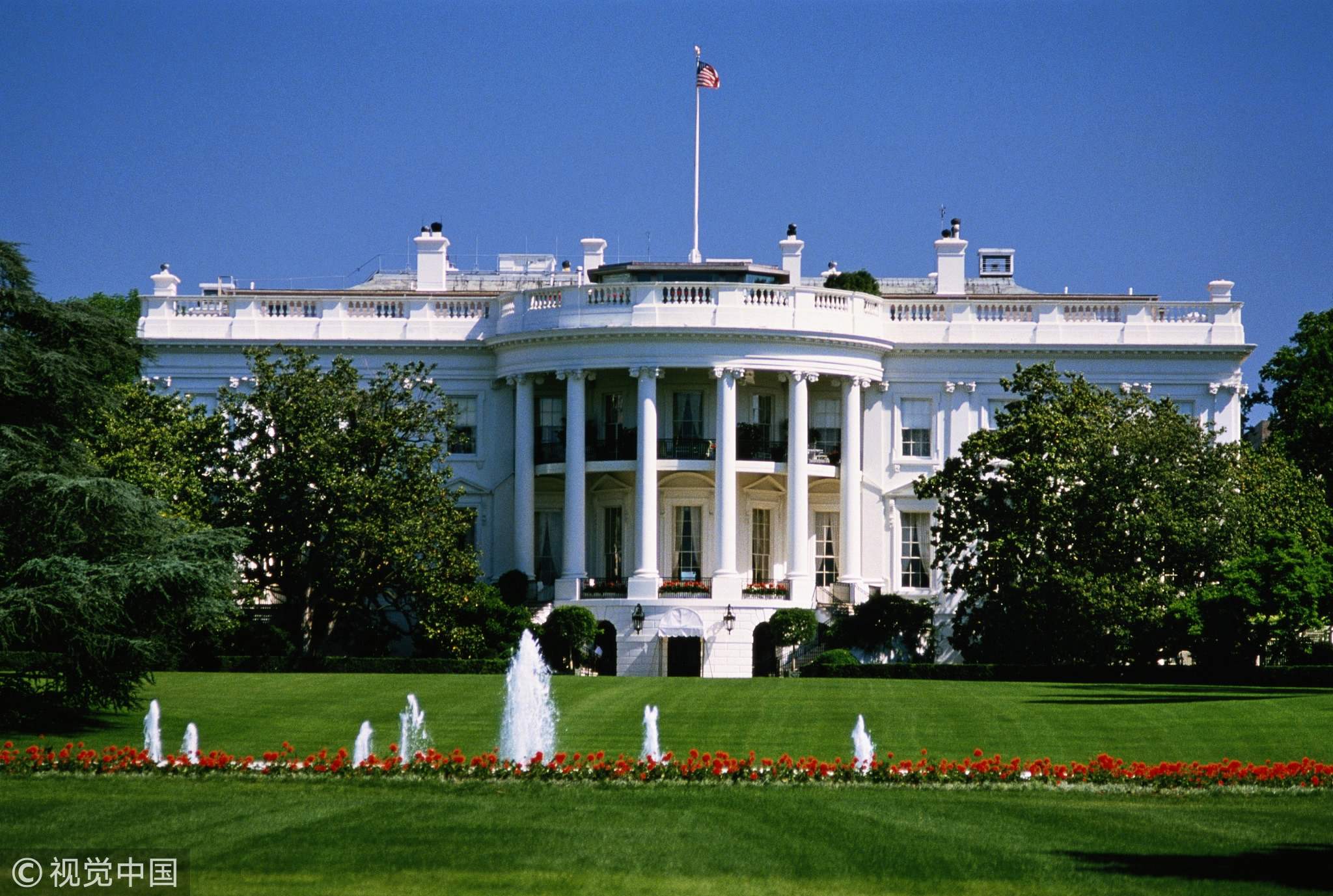
Opinions
08:52, 13-Mar-2018
The three ‘genetic defects’ of the Western model
Zhang Weiwei

Editor's Note: Zhang Weiwei is a Chinese professor of international relations at Fudan University, and a senior research fellow at the Chunqiu Institute. He is the author of The China Wave: Rise of a Civilizational State. The Chinese Way by Zhang Weiwei is a 10-part CGTN Digital series casting a critical eye over the governance of modern China. Professor Zhang identifies merits and flaws in the Chinese system and contrasts the China model with Western equivalents in a series of short films.
- The West is arrogant about its political system, and the model is in deep trouble
- Innovation is taking place across industries, across the world – but democracy stands still
The Western political model is struggling against the rise of nationalist populism. Chinese scholar Zhang Weiwei argues that the system has three "genetic defects“: the assumption that human beings are rational; the principle of absolute rights; and prohibitive procedures.
From the 2008 financial crisis to Brexit and the rise of Trump – these are all signs that the Western model is in deep trouble. Historically, Western political elites say that the Founding Fathers of the United States were much more cautious than today’s Western politicians on the issue of democracy. Most of them tended to emphasize republicanism and the rule of law as a way to preempt populism, a common movement within democracies.
With the end of the Cold War and with what political scientist Francis Fukuyama perceived as the “end of history”, one can clearly discern the arrogance of the West about its political system. After the Cold War, Western countries, especially the United States, marketed Western-style democracy around the world with the zeal of a missionary, pushing for the “third wave of democratization”, which, for a time, seemed to have gathered momentum.
Now, with the lapse of two decades, there are few positive results, at least by Chinese standards. In sharp contrast, China categorically rejects the Western political model and the country has risen at an unprecedented rate.
To me, there are three what I call “genetic defects” in the Western political model: the assumption that human beings are rational; the principle of absolute rights; and prohibitive procedures. Let’s discuss them briefly one by one.
First, the assumption that human beings are rational presumes that humans can exercise reason to make rational choices in casting their votes. So far, all relevant scientific studies have proven that humans can be both rational and irrational and even ultra-irrational.
“The rise of social media has furnished a fertile ground for the spread of the irrationality.”
- Zhang Weiwei
With the growing role of money and social media in politics, there may well be a rise of irrationality. Many politicians are taking advantage of voters’ irrationality and are playing the populist card in hopes of winning more votes and making more personal gains. In fact, we all know Adolf Hitler came into power this way in the 1930s. The rise of social media has furnished a fertile ground for the spread of the irrationality.

The logos of Facebook and Twitter. /VCG Photo
The logos of Facebook and Twitter. /VCG Photo
Second, the principle that rights are absolute is also a problem, notably the inflated concept of individual rights and the decline of individual responsibilities. There are so many rights, each of which are exclusive and absolute, often leading to a conflict of rights.
“The principle that rights are absolute is a problem, notably the inflated concept of individual rights and the decline of individual responsibilities.”
- Zhang Weiwei
If one looks at the United States today, one finds the grave problem of groups of people in conflict over the interpretation of rights: those for and against marriage equality for the LGBT community; those for and against abortion; those for and against religious equality for all religions, especially non-Christian ones. This kind of conflict causes a heavy toll on the cohesiveness of a society and the functioning of a state, as in the case of the US today.

Participants are seen in the 48th Annual Heritage of Pride March in New York, US on Jun. 25, 2017. /VCG Photo
Participants are seen in the 48th Annual Heritage of Pride March in New York, US on Jun. 25, 2017. /VCG Photo
Third, the belief in procedural importance in Western democracies is admirable, but in practice has bogged down the government’s ability to function. Western democracy has evolved into a procedural democracy, and once the procedure is deemed right, it does not matter who comes into power.
“Western democracy has been bogged down by procedural importance.”
- Zhang Weiwei
Stein Ringen, an Oxford scholar, explored this dilemma in his book “Nation of Devils”. He highlighted “uncontrollable legislation” in the United States as seen in the fact that all kinds of interest groups use lobbying as a way to protect their own interests. He described the dilemma as: If the United States wants to carry out reforms, it needs to amend the Constitution, yet constitutional amendments have to go through prohibitive procedures. In other words, due to procedural reasons, reforms can hardly be “authorized by democracy” and “how can you expect a sick man to cure a sick man?” Once procedural justice has been taken as justice itself and made absolute, the consequence is often substantial injustice.

The White House. /VCG Photo
The White House. /VCG Photo
As a matter of fact, many enlightened people in the West have come to realize the deep trouble with the Western model. I remember in Belgium, after going through a crisis of more than 500 days without a central government, many Belgian intellectuals published a “Manifesto of One Thousand People Group” in November 2011, which vehemently criticized the failure of Western democracies to keep up with change: “Except for democracy, innovations all over the world are everywhere.”
For instance, companies must continuously reform; scientists must go beyond disciplinary boundaries; athletes must keep on breaking world records and artists must keep on bringing forth the new. But when speaking of the form of social organizations, obviously we remain self-complacent with the procedures of the 1830s.
Why do we have to cling to the 200-year old curios? Democracy is a living organism and the form of democracy is not fixed; it should continuously develop to meet the demands of time.”

SITEMAP
Copyright © 2018 CGTN. Beijing ICP prepared NO.16065310-3
Copyright © 2018 CGTN. Beijing ICP prepared NO.16065310-3